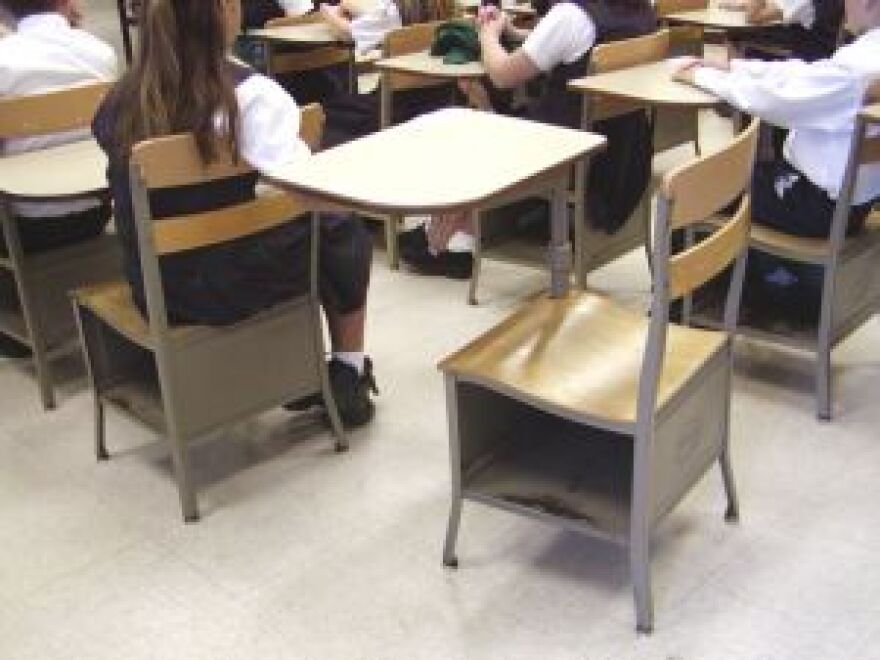No matter how good schools are, you can’t learn if you’re not there. That simple truth — and its far-reaching implications — are the focus of Accounted For, a St. Louis Public Radio special project that began this week.
Education reporter Tim Lloyd, working with staff members Aaron Doerr and Brent Jones, explains why schools have so much trouble recognizing and coming to grips with chronic absenteeism. Partly, it’s because attendance numbers have generally been kept by building, not broken down to identify which individual students are missing a lot of school. Partly, it’s because solutions require addressing fears, needs and challenges that extend well beyond the classroom.
Yes, some students may skip school because they’re bored and irresponsible. But others have more pressing concerns. They’re afraid of bullies, for example, or worried about finding a place to sleep. Or they need to take care of a sick sibling while parents work. When a family is struggling, school attendance can get lost in the chaos.
Absences carry big risks — in early grades, of falling behind on basic skills; in later grades, of dropping out. The consequences ripple beyond one student, as poor performance and behavior problems disrupt learning for others. An animated video that Tim and Aaron produced lays out the stakes in simple terms. Tuesday's St. Louis On The Air featured experts who have researched and worked on the problem.
Attendance has recently begun to get more attention in Missouri due to the state’s new 90-90 standard. To earn points toward accreditation, schools must have 90 percent of the students in class 90 percent of the time.
Next week, our Accounted For project will continue with a look at Riverview Gardens' push to improve attendance. In coming weeks, we’ll explore more of the causes, consequences and possible cures for chronic absenteeism.
Projects such as this deliver on St. Louis Public Radio's commitment to cover news that matters. That commitment means much more than just reporting what happens each day. It means looking deeper to explore why, what difference it makes and what might be done. In addition to Accounted For, our work this week also included:
- Robert Joiner’s in-depth look at the doctor shortage in rural Missouri;
- Dale Singer’s continuing coverage of the debate over state education policy and funding;
- Chris McDaniel’s analysis of the weaknesses in Missouri’s Sunshine Law.
 Covering significant issues with depth and continuity may sound like heavy lifting. But done well, it lifts the veil of confusion that can surround the news, making it easier for you to understand the forces that shape our community.
Covering significant issues with depth and continuity may sound like heavy lifting. But done well, it lifts the veil of confusion that can surround the news, making it easier for you to understand the forces that shape our community.
Send questions and comments about this story to feedback@stlpublicradio.org.
Support Local Journalism
St. Louis Public Radio is a non-profit, member-supported, public media organization. Help ensure this news service remains strong and accessible to all with your contribution today.



